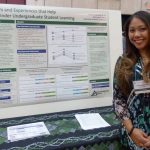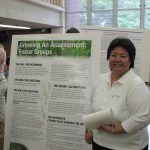Focus Group, Interview, or Survey: Which is Right for Your Academic or Co-Curricular Program?
This workshop will describe the purpose, strengths, and weaknesses of each data collection method. For Academic Programs: PowerPoint …

This workshop will describe the purpose, strengths, and weaknesses of each data collection method. For Academic Programs: PowerPoint …

Institutions that understand what helps and hinders student learning will know how to improve student proficiency in core …

Outreach College serves as an advocate for the needs of the nontraditional, adult and distance learning students, i.e., …
The Myron B. Thompson School of Social Work -Approximately 20 students graduate with a Bachelor’s degree in Social …